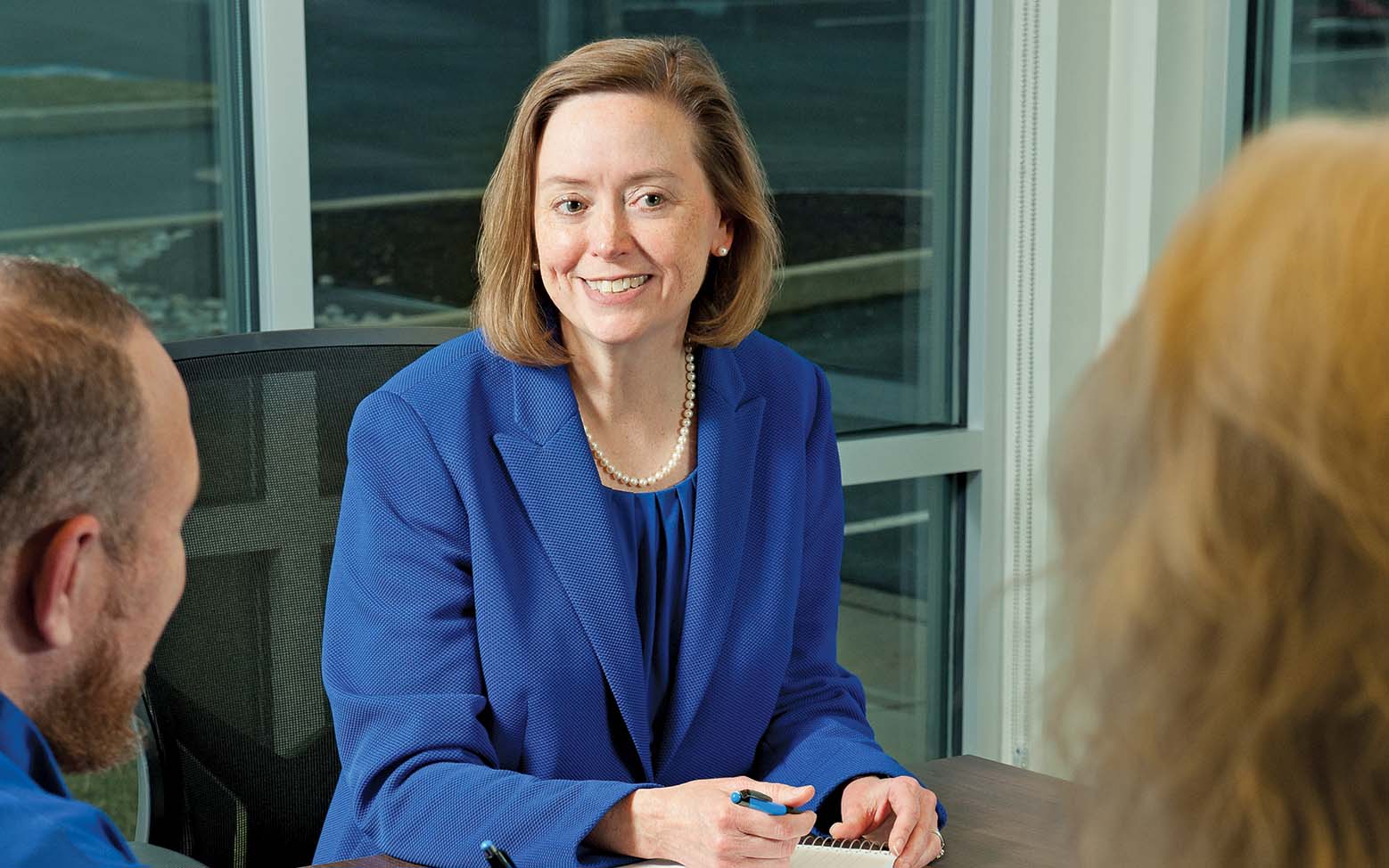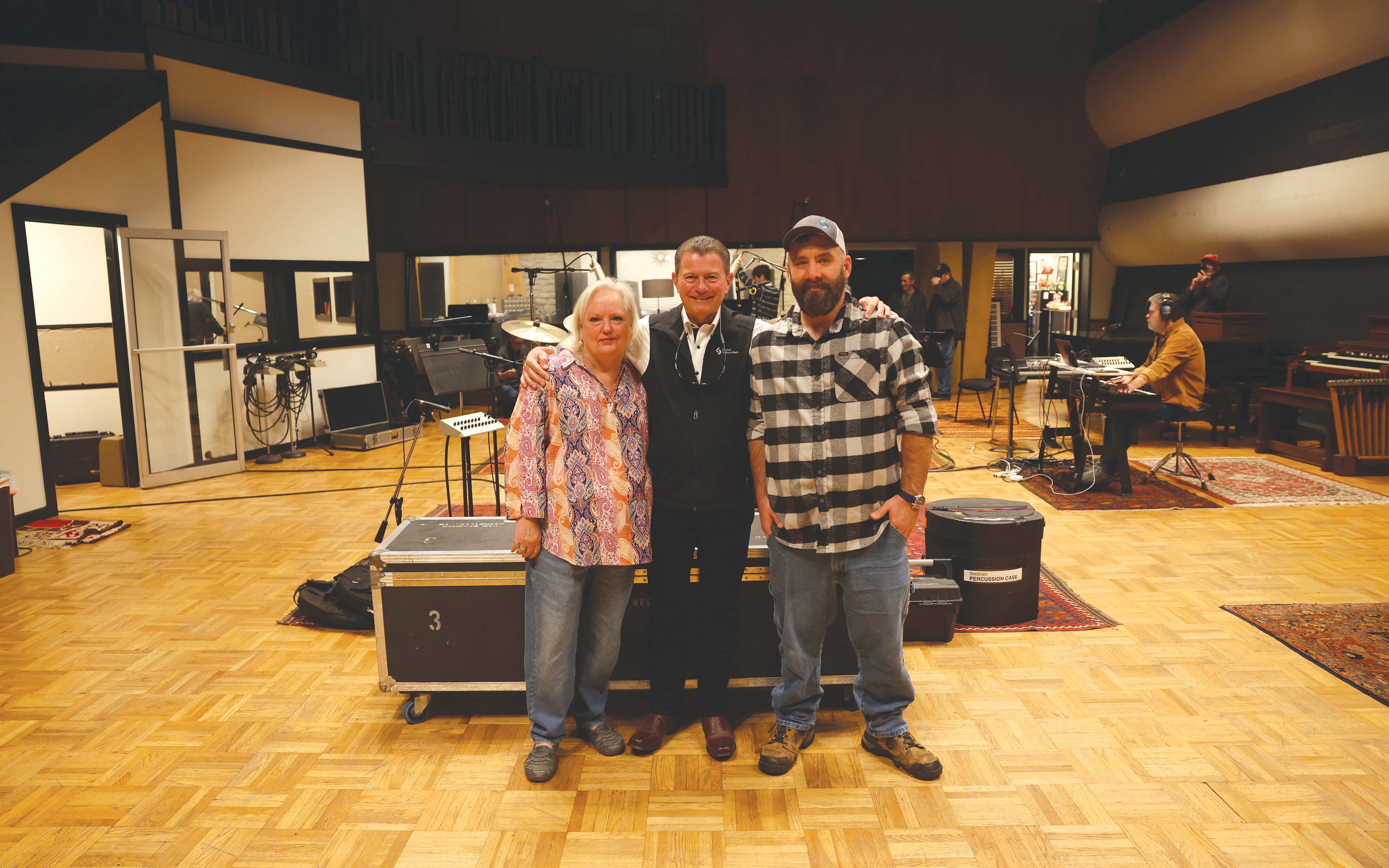ICBA’s National Community Bank Service Awards is a moment to celebrate the community banks that have stepped up for their communities in significant ways. This year, all community banks have faced a huge challenge in the COVID-19 pandemic. So, instead of highlighting a few winners, this year we are honoring all community banks. Here, we share just some of the many inspiring stories ICBA members submitted.
2020’s National Community Bank Service Award winner? You
0920 Service Awards 750
September 01, 2020 / By Roshan McArthur
ICBA’s National Community Bank Service Awards is a moment to celebrate the community banks that have stepped up for their communities in significant ways. This year, all community banks have faced a huge challenge in the COVID-19 pandemic. So, instead of highlighting a few winners, this year we are honoring all community banks. Here, we share just some of the many inspiring stories ICBA members submitted.
In early 2020, the COVID-19 pandemic sent shockwaves around the world. But as a health and economic crisis set in across the U.S., community bankers stepped up, providing support to their communities in the most challenging of circumstances.
As community bankers, it’s natural to come together in both good and bad times. Your communities have endured the devastation of fires, tornadoes, floods and much more in years past, but 2020 has brought a crisis unlike any other in living memory. And when it came time for this year’s National Community Bank Service Awards, your response was overwhelming and inspiring.
The greatest takeaway from the many entries ICBA received was of a huge collective effort among community banks, which pulled together and did whatever was needed to serve. Community bankers told stories of working long days—even on weekends and holidays—to process loans; of leaders purchasing lunches to feed their employees and support struggling local restaurants; of community banks amassing large donations to food banks and nearby charities; and of imaginative and heartfelt projects designed to lift their communities’ spirits.
Here, we spotlight just a few of the many stories of community banks doing the work to get their communities through tough times.
COVID-19 came on like a switch. One day, it was business as usual, but then came the closure of the lobby to prevent the virus from spreading.”—Mary Bocash, Canton Co-operative Bank
Putting safety first
As cases spread and schools and businesses closed, community banks rapidly pivoted to new models and instituted measures to put the safety of employees and customers first.
At $134 million-asset Canton Co-operative Bank in Canton, Mass., “COVID-19 came on like a switch,” says Mary Bocash, operations manager. “One day, it was business as usual, but then came the closure of the lobby to prevent the virus from spreading.” The community bank’s upper management team immediately installed protective Plexiglas on each employee’s desk and at each teller’s window. They also ordered a generous supply of masks, gloves, sanitizers and antivirus wipes for every station and in all public areas of the bank. “Our frontline employees were split into two teams working two different shifts to enforce social distancing and also protect the bank,” Bocash adds. “If ever there was a case of the virus, fewer people would be affected.”
$0
The cost of digital lessons for remote learning for families including financial education, mental wellness, compassion, digital wellness and prescription drug safety, provided by $10 billion-asset Provident Bank in Jersey City, N.J., through education technology company EverFi
Central Valley Community Bank in Fresno, Calif., found out it was better prepared than it thought. In the basement of one of its banking centers, staff discovered an old pandemic preparedness box that contained 1,500 N95 face masks and gloves in perfect shape. The $1.9 billion-asset community bank immediately donated them to a local hospital.
As far back as February, $2 billion-asset Maspeth Federal Savings in Maspeth, N.Y., worked with its local assembly member to secure more than 11,000 masks, the bulk of which it gave to two large hospitals in Queens, one of the hardest-hit areas of the country. In the same vein, $1.5 billion-asset Somerset Trust Company in Somerset, Pa., used three 3D printers it already had to make hundreds of protective face shields for local medical workers, nursing homes, dentist offices and convenience stores.
Many community banks switched to a safer and quicker drive-thru model, some with great creativity. Citizens Bank of Edmond in Edmond, Okla., described how it “Chick-fil-A-ed” its branch driveway. Staff rigged up toolbelts to carry deposit slips and sanitized pens, then greeted customers on the passenger side of their cars and used walkie-talkies to communicate with the team inside to expedite customer requests.


Stepping up when bigger banks wouldn’t
In Des Plaines, Ill., as the lockdowns began, flower shop owner Cathy Baske was struggling to obtain PPP funding. Her bank had told her that the size of her loan was “too small.” Randy Blackburn, chief operating officer of $192 million-asset Millennium Bank, came across her story in a local newspaper and reached out.
“After a very frustrating time trying to land a PPP loan during this pandemic, Millennium Bank came to my rescue,” Baske says. “The team secured me a PPP loan and hand delivered me the check in just seven days. Thanks to their help, I feel confident that I will make it through these tough times.”
Similarly, Rudy Malmquist, who owns a web development company, was ignored for three weeks by his big bank. He reached out to $1.4 billion-asset ChoiceOne Bank in Sparta, Mich., and had an approval for his PPP loan within hours. He is now switching all of his business and personal accounts to ChoiceOne Bank.
Working 24/7 to save small businesses
$500,000
The amount Stearns Bank, a $2.2 billion-asset community bank in
St. Cloud, Minn., committed to Anna Marie’s Alliance, a refuge for women and children facing domestic violence
The biggest challenge of the first months of the pandemic was, of course, the implementation of the Small Business Administration’s (SBA) Paycheck Protection Program (PPP). The sheer volume of loans processed was staggering. Teams showed up at all hours of the day, at weekends and on public holidays, to process record numbers of applications.
MainStreet Bank in Fairfax, Va., said it normally processes around 300 loans a year. During the PPP, the $2.3 billion-asset community bank processed 1,125 of them. The majority of the bank’s staff worked on split 24-hour shifts for three solid days in April with scheduled sleep periods. The resulting loans were worth nearly $195 million, which the community bank estimates saved roughly 10,000 jobs.
This is community banking. We are so grateful for the amazing team of NexTier employees who pitched in to get this done.”—Clem Rosenberger, NexTier Bank
NexTier Bank in Butler, Pa., mobilized a team that included the chief marketing officer and CEO, working through the night and over Easter weekend to process more than 600 loans. To date, the $1.6 billion-asset community bank has processed 1,106 loans totaling nearly $130 million.
“This is community banking,” says NexTier Bank president and CEO Clem C. Rosenberger. “We are so grateful for the amazing team of NexTier employees who pitched in to get this done.”
Community bankers sent in remarkable stories of how they went the extra mile for their communities, jumping in to help businesses without being asked. Rob Morris from $3.4 billion-asset First International Bank & Trust, which is based in Watford City, N.D., is a regular at Base Pizzeria, a restaurant near the community bank’s Phoenix, Ariz., office. When Morris asked the pizzeria’s owners if they had submitted a PPP application, they told him their bank had been unresponsive. The next day, he worked with them to get the application process underway. “What matters to us is to extend a lifeline to our communities to get people through this crisis,” says Erik Stenehjem, First International Bank & Trust’s Arizona market president. “The people affected by this crisis did not make mistakes or wrong choices but were instead thrust into a situation that no one has faced before. Doing our part means providing relief to our communities. Our goal is to help as many people as we can.” As of May 28, First International Bank & Trust had approved 1,945 loans totaling more than $302 million.
Choice Bank in Fargo, N.D., had a similar success story. Beaver’s Café in Minto, N.D., known for its Mustang burgers, was about to lay off seven employees and close up shop when it got a call from Andrew Peterson, the $2.7 billion-asset bank’s business and agriculture banker. He was checking to see if the café’s owners knew about the PPP. Peterson helped secure a $10,400 loan, enough to keep Beaver’s Café going for three months. The bank helped 2,000-plus other businesses, saving some 22,000 jobs and securing $400 million in approved loans.

Beyond the PPP
As much of the country went into lockdown, businesses of all kinds were forced to take extreme measures to survive, and many reached out to their financial institutions for support beyond the PPP. Community banks came through for them in a big way, helping customers and noncustomers alike.
Avidia Bank, a $2 billion-asset community bank in Hudson, Mass., offered low-cost loans of up to $35,000 at a fixed rate of 1.95% for the first year to anyone, regardless of status. $2.1 billion-asset Chemung Canal Trust Company in Elmira, N.Y., cleaned up direct deposit information to ensure stimulus payments reached customers faster. And $1 billion-asset Ulster Savings Bank in Kingston, N.Y., waived ATM, overdraft and other fees to the tune of $844,420 and deferred nearly 1,200 loan payments.
A different kind of relationship banking
A community bank with one of the most surprising stories submitted to ICBA’s National Community Bank Service Awards is $3.7 billion-asset Bar Harbor Bank & Trust in Bar Harbor, Maine. Two of its customers had planned a destination wedding in Florida but were unable to travel due to the pandemic. Getting married at a church or town hall wasn’t possible, either. They had another problem: The soon-to-be Mr. and Mrs. Gray had already had their rings engraved with their planned wedding date. They asked for a special favor from Bar Harbor Bank & Trust’s regional market manager, Lisa Parsons.

“The Grays wanted to have family and friends witness their ceremony, but in a safe way that encouraged social distancing and kept the officiant safe, too,” Parsons says. “That’s when the couple came up with the idea of holding their wedding at our drive-up window.”
Here’s how the community bank described the truly topical event: “On a beautiful sunny afternoon, with musicians, friends and family scattered at a safe distance throughout the parking lot, in their cars or joining via Zoom, and the officiant behind the drive-up window glass, the wedding went off without a hitch. The wedding license was passed through the window for the officiant to sign and the celebration was complete. In the state of Maine, notary publics are able to perform weddings. So, not only did [Parsons], a notary, help coordinate the wedding service, she actually married the couple!”
Creativity to the fore

Community banks’ giving manifested itself in a variety of highly creative ways. From distributing children’s books at drive-thrus, as $1.4 billion-asset Lincoln Savings Bank in Reinbeck, Iowa, did, to sponsoring a photo opportunity and food truck for 2020 graduates, like $533 million-asset FNB Community Bank in Midwest City, Okla., community banks have stepped up in imaginative and colorful ways.
United Mississippi Bank in Natchez, Miss., partnered with Threads, a T-shirt printer and customer, to create UMB “Love Local” shirts for the bank’s staff. For each shirt sold, $15 was donated to businesses and charities the $360 million-asset community bank supports. First Columbia Bank & Trust Co. in Bloomsburg, Pa., took its annual Teen Star Musical Competition, a community event for high school students modeled after American Idol, online for the first time. The $738 million-asset bank’s event raised $106,000 for a local mission.
My current count of masks is 1,039, and I am still going, with more orders to fill. I will continue making the masks until they are no longer needed.”
—Dawn Skipper, United Bank
Employees of $225 million-asset First National Bank in Amboy in Amboy, Ill., wrote nearly 600 cards to nursing home residents and delivered them with cookies from local bakeries. “We received a call a few weeks later from an elderly gentleman whose wife was at one of these facilities,” says Colleen Henkel, executive vice president and cashier. “She had celebrated her 87th birthday on April 22 and passed away on April 23. He lives at home and of course was unable to be with her. He went to pick up her personal belongings and found our card. Even though he had just lost his wife, he took the time to call and thank us. We were beyond touched.”
Also helping nursing homes and other healthcare facilities is Dawn Skipper, an agriculture specialist at $890 million-asset United Bank in Atmore, Ala. In addition to her bank work, Skipper is an avid seamstress.

“I began making masks March 23, and I have not stopped,” she says. “I spend an average of three hours each weeknight making masks and average six to eight hours each Saturday and each Sunday. My current count of masks is 1,039, and I am still going, with more orders to fill. I will continue making the masks until they are no longer needed.”
The masks Skipper and her colleagues created have been distributed to several facilities, as well as to fellow bank colleagues, a food bank, local businesses, mail carriers and police departments. “I enjoy doing this,” she says, “and it just makes my heart happy to be able to provide individuals with these masks, knowing that I am helping protect them.”
A feast of giving
Food was a common theme among entries to ICBA’s National Community Bank Service Awards. The restaurant sector has been among the hardest hit by the pandemic.
$303 million-asset Peoples State Bank in Hallettsville, Texas, has been purchasing about 22 meals a day, as well as ice cream, snacks, coffees and other treats on Fridays.
Royal Bank in Elroy, Wis., found a way of helping multiple organizations at once. The $525 million-asset community bank donated $20,000 worth of food from struggling farmers to local food pantries that were fighting to keep up with demand.
Howard Bank in Baltimore donated $100,000 to organizations providing relief on the frontlines, including area hospitals and the Maryland Food Bank. The $2 billion-asset community bank also launched a program called Dinner on Us, giving each of its 240 employees an extra $50 each to support the local food service industry. “Our colleagues put in incredible hours to service clients, but now more than ever, these businesses in our region need our support,” says chairman and CEO Mary Ann Scully. “Dinner on Us is a gesture that shows we care about our employees, and it does so in a way that also supports the local businesses that have kept our economy moving during better times.”
$303 million-asset Pioneer Bank & Trust in Spearfish, S.D., put its own spin on this idea by buying its entire staff lunches and leaving restaurants $1,000 tips.
$707 million-asset Port Washington State Bank in Port Washington, Wis., purchased $1,100 in cupcakes from a food truck customer, then delivered them to employees to thank them for their hard work.
$465 million-asset Community State Bank of Union Grove, Wis., bought 100 pies for staff from a bakery in nearby Kenosha.
Subscribe now
Sign up for the Independent Banker newsletter to receive twice-monthly emails about new issues and must-read content you might have missed.
Sponsored Content
Featured Webinars
Join ICBA Community
Interested in discussing this and other topics? Network with and learn from your peers with the app designed for community bankers.
Subscribe Today
Sign up for Independent Banker eNews to receive twice-monthly emails that alert you when a new issue drops and highlight must-read content you might have missed.
News Watch Today

Join the Conversation with ICBA Community
ICBA Community is an online platform led by community bankers to foster connections, collaborations, and discussions on industry news, best practices, and regulations, while promoting networking, mentorship, and member feedback to guide future initiatives.












